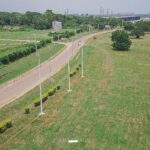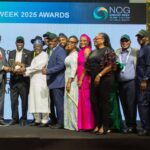Oredola Adeola
The Nigerian Electricity Regulatory Commission (NERC) has recommended the integration of cheaper renewable energy sources into the national grid to diffuse the total energy production cost, consequently leading to a drop in electricity tariff.
Dafe Akpeneye, NERC Commissioner, Legal, Licencing and Compliance (LL&C), made this remark as a member of the six-man panel discussion on the power sector at the 18th Annual Business Law International Conference of the Nigerian Bar Association (NBA) Section on Business Law in Abuja on Friday.
Speaking on the theme for the panel discussion ‘Tackling the Power Deficit: Is Renewable Energy the Solution? the NERC Commissioner said that Nigeria already uses large hydropower that is cheaper to generate electricity.
He emphasised that the gas-fired power plants which account for up to about 80% of the power generation mix in Nigeria, are costly to operate, hence the hike in electricity tariff.
Akpeneye further emphasised that the integration of renewable energy especially solar power which is becoming cheaper could diffuse the total energy production cost and could in the long run lead to a drop in tariff.
Advisors Reports have revealed that Nigeria currently has almost 26 active power generating plants connected to the national grid, boasting a total installed capacity of 10,396 MW, with gas-fired plants accounting for the majority of electricity generation in Nigeria, making up about 80% of the country’s power supply mix.
On June 3, 2024, NERC issued a directive to TCN-ISO to enter into an interim energy sales agreement with the newly completed Zungeru Hydro Electricity Generation Company Limited (ZHEGC) for up to 450MW of energy to address the imbalances currently experienced between generation and offtake, to strengthen grid management.
The addition of Zungeru to the grid has therefore fortified the country’s hydropower energy mix, enhancing the energy supply from hydro-plants including Dadinkowa, Jebba, Kainji, and Shiroro.
NERC is collaborating with the Transmission Company of Nigeria (TCN) to integrate more renewable energy, including solar, into the national grid to improve electricity access and reliability across the country.
TCN recently confirmed its collaboration with the World Bank to bring renewable energy into the national grid.
Meanwhile, Advisors Report further findings shows that solar energy, accounting for a small but growing portion of Nigeria’s off-grid electricity generation, reached around 52 MW in 2024, with active deployment of more mini-grid and solar home systems by the government and private sector.






